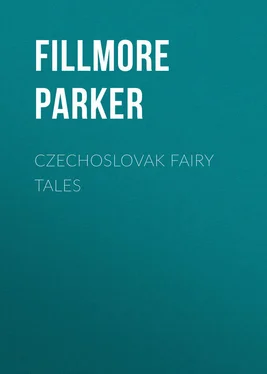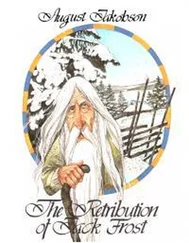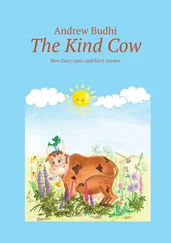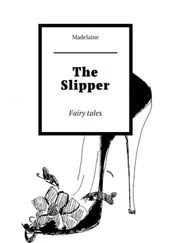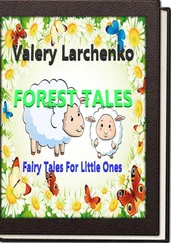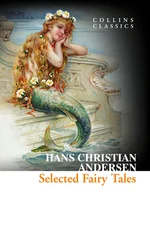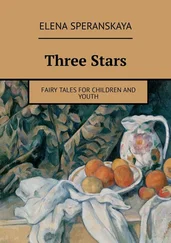Parker Fillmore - Czechoslovak Fairy Tales
Здесь есть возможность читать онлайн «Parker Fillmore - Czechoslovak Fairy Tales» — ознакомительный отрывок электронной книги совершенно бесплатно, а после прочтения отрывка купить полную версию. В некоторых случаях можно слушать аудио, скачать через торрент в формате fb2 и присутствует краткое содержание. Жанр: foreign_antique, foreign_prose, Сказка, на английском языке. Описание произведения, (предисловие) а так же отзывы посетителей доступны на портале библиотеки ЛибКат.
- Название:Czechoslovak Fairy Tales
- Автор:
- Жанр:
- Год:неизвестен
- ISBN:нет данных
- Рейтинг книги:5 / 5. Голосов: 1
-
Избранное:Добавить в избранное
- Отзывы:
-
Ваша оценка:
- 100
- 1
- 2
- 3
- 4
- 5
Czechoslovak Fairy Tales: краткое содержание, описание и аннотация
Предлагаем к чтению аннотацию, описание, краткое содержание или предисловие (зависит от того, что написал сам автор книги «Czechoslovak Fairy Tales»). Если вы не нашли необходимую информацию о книге — напишите в комментариях, мы постараемся отыскать её.
Czechoslovak Fairy Tales — читать онлайн ознакомительный отрывок
Ниже представлен текст книги, разбитый по страницам. Система сохранения места последней прочитанной страницы, позволяет с удобством читать онлайн бесплатно книгу «Czechoslovak Fairy Tales», без необходимости каждый раз заново искать на чём Вы остановились. Поставьте закладку, и сможете в любой момент перейти на страницу, на которой закончили чтение.
Интервал:
Закладка:
The seer and his man hid themselves under the bridge and lay there in wait until evening. As the sun sank behind the mountains, they heard the clatter of hoofs approaching the bridge. It was the eldest king returning home. At the bridge his horse stumbled on a log which the seer had rolled there.
“What scoundrel has thrown a log here?” cried the king angrily.
Instantly the seer leaped out from under the bridge and demanded of the king how he dared to call him a scoundrel. Clamoring for satisfaction he drew his sword and attacked the king. The king, too, drew sword and defended himself, but after a short struggle he fell from his horse dead. The seer bound the dead king to his horse and then with a cut of the whip started the horse homewards.
The seer hid himself again and he and his man lay in wait until the next evening.
On that evening near sunset the second king came riding up to the bridge. When he saw the ground sprinkled with blood, he cried out: “Surely there has been a murder here! Who has dared to commit such a crime in my kingdom!”
At these words the seer leaped out from under the bridge, drew his sword, and shouted: “How dare you insult me? Defend yourself as best you can!”
The king drew, but after a short struggle he, too, yielded up his life to the sword of the seer.
The seer bound the dead king to his horse and with a cut of the whip started the horse homewards.
Then the seer hid himself again under the bridge and he and his man lay there in wait until the third evening.
On the third evening just at sunset the youngest king came galloping home on the flaming steed. He was hurrying fast because he had been delayed. But when he saw red blood at the bridge he stopped short and looked around.
“What audacious villain,” he cried, “has dared to kill a man in my kingdom!”
Hardly had he spoken when the seer stood before him with drawn sword demanding satisfaction for the insult of his words.
“I don’t know how I’ve insulted you,” the king said, “unless you’re the murderer.”
When the seer refused to parley, the king, too, drew his sword and defended himself.
To overcome the first two kings had been mere play for the seer, but it was no play this time. They both fought until their swords were broken and still victory was doubtful.
“We shall accomplish nothing with swords,” the seer said. “That is plain. I tell you what: let us turn ourselves into wheels and start rolling down the hill and the wheel that gets broken let him yield.”
“Good!” said the king. “I’ll be a cartwheel and you be a lighter wheel.”
“No, no,” the seer answered quickly. “You be the light wheel and I’ll be the cartwheel.”
To this the king agreed. So they went up the hill, turned themselves into wheels and started rolling down. The cartwheel went whizzing into the lighter wheel and broke its spokes.
“There!” cried the seer, rising up from the cartwheel. “I am victor!”
“Not so, brother, not so!” said the king, standing before the seer. “You only broke my fingers! Now I tell you what: let us change ourselves into two flames and let the flame that burns up the other be victor. I’ll be a red flame and do you be a white one.”
“Oh, no,” the seer interrupted. “You be the white flame and I’ll be the red one.”
The king agreed to this. So they went back to the road that led to the bridge, turned themselves into flames, and began burning each other mercilessly. But neither was able to burn up the other.
Suddenly a beggar came down the road, an old man with a long gray beard and a bald head, with a scrip at his side and a heavy staff in his hand.
“Father,” the white flame said, “get some water and pour it on the red flame and I’ll give you a penny.”
But the red flame called out quickly: “Not so, father! Get some water and pour it on the white flame and I’ll give you a shilling!”
Now of course the shilling appealed to the beggar more than the penny. So he got some water, poured it on the white flame and that was the end of the king.
The red flame turned into a man who seized the flaming horse by the bridle, mounted him and, after he had rewarded the beggar, called his servant and rode off.
Meanwhile at the royal palace there was deep sorrow for the murdered kings. The halls were draped in black and people came from miles around to gaze at the mutilated bodies of the two elder brothers which the horses had carried home.
The old witch was beside herself with rage. As soon as she had devised a plan whereby she could avenge the murder of her sons-in-law, she took her three daughters under her arm, mounted an iron rake, and sailed off through the air.
The seer and his man had already covered a good part of their journey and were hurrying on over rough mountains and across desert plains, when the servant was taken with a terrible hunger. There wasn’t anything in sight that he could eat, not even a wild berry. Then suddenly they came upon an apple tree that was bending beneath a load of ripe fruit. The apples were red and pleasant to the sight and sent out a fragrance that was most inviting.
The servant was delighted. “Glory to God!” he cried. “Now I can feast to my heart’s content on these apples!”
He was already running to the tree when the seer called him back.
“Wait! Don’t touch them! I will pick them for you myself!”
But instead of picking an apple, the seer drew his sword and struck a mighty blow into the apple tree. Red blood gushed forth.
“Just see, my man! You would have perished if you had eaten one apple. This apple tree is the eldest queen, whom her mother, the witch, placed here for our destruction.”
Presently they came to a spring. Its water bubbled up clear as crystal and most tempting to the tired traveler.
“Ah,” said the servant, “since we can get nothing better, at least we can take a drink of this good water.”
“Wait!” cried the seer. “I will draw some for you.”
But instead of drawing water he plunged his naked sword into the middle of the spring. Instantly it was covered with blood and blood began to spurt from the spring in thick streams.
“This is the second queen, whom her mother, the witch, placed here to work our doom.”
Presently they came to a rosebush covered with beautiful red roses that scented all the air with their fragrance.
“What beautiful roses!” said the servant. “I have never seen any such in all my life. I’ll go pluck a few. As I can’t eat or drink, I’ll comfort myself with roses.”
“Don’t dare to pluck them!” cried the seer. “I’ll pluck them for you.”
With that he cut into the bush with his sword and red blood spurted out as though he had cut a human vein.
“This is the youngest queen,” said the seer, “whom her mother, the witch, placed here in the hope of revenging herself on us for the death of her sons-in-law.”
After that they proceeded without further adventures.
When they crossed the boundaries of the dark kingdom, the sun in the horse’s forehead sent out its blessed rays in all directions. Everything came to life. The earth rejoiced and covered itself with flowers.
The king felt he could never thank the seer enough and he offered him the half of his kingdom.
But the seer replied: “You are the king. Keep on ruling over the whole of your kingdom and let me return to my cottage in peace.”
He bade the king farewell and departed.
THE THREE CITRONS
ONCE upon a time there was an aged king who had an only son. One day he called the prince to him and said: “My son, you see that my head is white. Soon I shall be closing my eyes and you are not yet settled in life. Marry, my son, marry at once so that I can bless you before I die.”
Читать дальшеИнтервал:
Закладка:
Похожие книги на «Czechoslovak Fairy Tales»
Представляем Вашему вниманию похожие книги на «Czechoslovak Fairy Tales» списком для выбора. Мы отобрали схожую по названию и смыслу литературу в надежде предоставить читателям больше вариантов отыскать новые, интересные, ещё непрочитанные произведения.
Обсуждение, отзывы о книге «Czechoslovak Fairy Tales» и просто собственные мнения читателей. Оставьте ваши комментарии, напишите, что Вы думаете о произведении, его смысле или главных героях. Укажите что конкретно понравилось, а что нет, и почему Вы так считаете.
